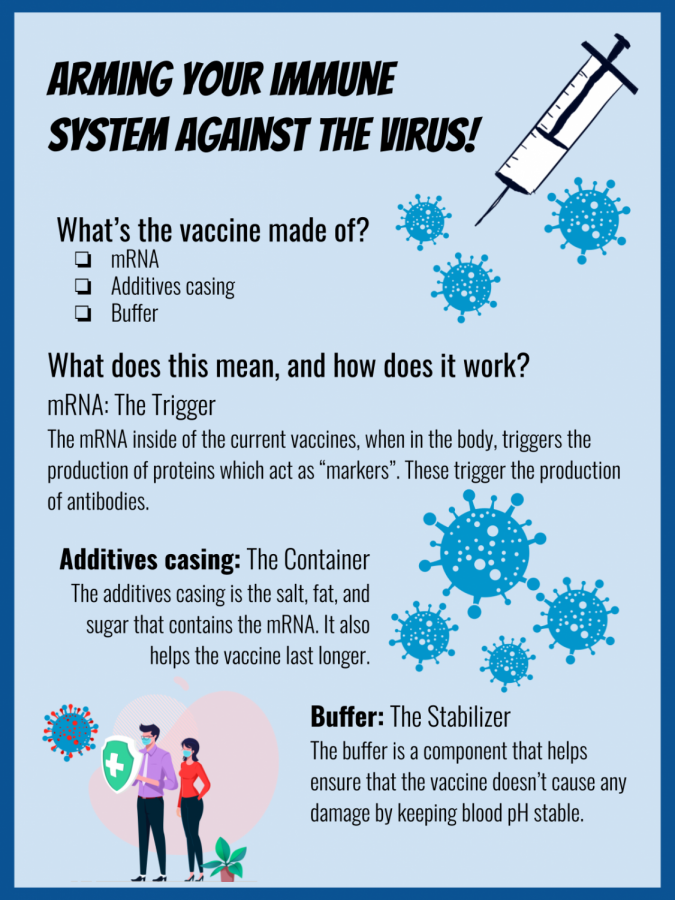Why are people afraid of the vaccine?
The Covid-19 vaccine is a necessary medical breakthrough that everyone should take.
February 26, 2021
Now that Amador teachers are being vaccinated with the Covid-19 vaccine, a plethora of conspiracy theories about the vaccine are surrounding its ingredients.
Every single political event or scientific breakthrough seems to inspire some random person online to create a theory and then post it on Facebook or another social media platform.
Vaccines, being a very common medical practice, are not exempt from this rule. And because of this, there is a large number of fear mongering going on related to the supposed “effects” of vaccines.
When asked about why people believe these things, Amador teacher Amy Suto responded “I don’t know, I’m not aware if any conspiracy theories have been sparked into life because of corona, but I try to keep on the more knowledgeable side and do my own research.”
One of the many ideas that drive people to become anti-vaxxers is the myth of its correlation to autism. Of course, this is just superstition based on no evidence at all, except for the rise in autism rates since 1992, which is speculated to actually be because of increased diagnosis and reporting, instead of the medical shot. Since autism is completely genetic doing something as simple as injecting a few chemicals into your body, even if they are toxic, will not change the genetic makeup of every single one of your cells.
Ingredients in vaccines
Another hot topic among the anti-vax community is the supposed danger of some of the chemicals found in vaccines, the most noticeable one being mercury, which can be toxic in gaseous form or in large enough liquid quantities.
Of course, the community of anti-vaxxers tend to claim that the mercury contained in a vaccine is poisonous, and is inherently harmful, however, this isn’t actually the case. Vaccines contain 0.01% of thimerosal as a preservative that contains 25 micrograms of mercury per 0.5 mL dosage.
When asked about her experience with getting the vaccine, Ms. Suto replied “it took a while to actually get the appointment, but that was probably because they needed to [vaccinate] so many teachers, it’s taken a lot of time for other teachers. the process itself was really easy, it went smoothly, didn’t have to wait that long, just went in and got it done.”
People fear vaccines for very stupid reasons, and them refusing to get them puts the rest of a community in danger of being infected, just because of selfish reasons. Ignoring the evidence and sticking with one’s headcanon is a foolish idea, however, doing your own research is always a smart idea, and should be encouraged.





